Return to Isolationism
The election of Donald Trump as the new president of the United States has signaled the return of ‘neoisolationism’. Isolationism fever has started spreading all over the world. ST discusses the definition of isolationism and its influence on Korea as well as on the international politics.……Ed
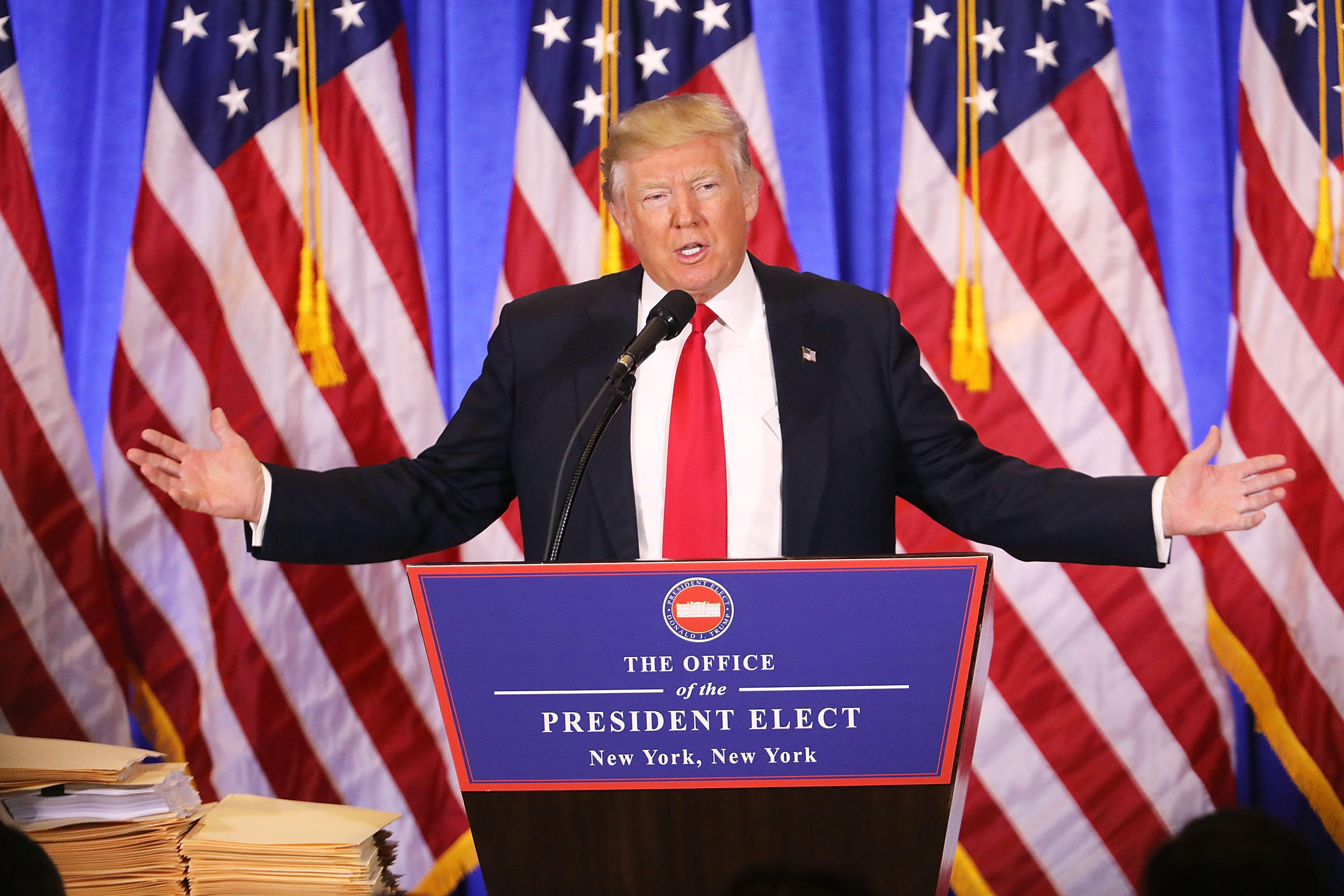

On June 23, 2016, 51% of the people of the United Kingdom (UK) supported the country’s withdrawal from the European Union (EU). The UK has accepted the outcome of what is now better known as Brexit. Brexit shocked the world and destabilized the world’s financial and stock markets. Before the shock of Brexit started wearing off, on November 8th, 2016, Donald Trump was elected as the 45th president of the United States. Trump claimed that America is first on his agenda, and that will get more Americans back to work and help rebuild America quickly under the slogan, ‘Make America Great Again’. Many scholars expected that the election of Trump—who presents a policy of standing for America’s own people instead of becoming the world’s policeman—and the decision of the UK to become independent from the EU will lead to the return of isolationism in the world. Let’s take a close look at the tendency toward isolationism as a result of recent events and Korea’s preparedness toward such possibility.
The Definition of Isolationism
Isolationism refers to a policy of national isolation by abstention from alliances and the affairs of other countries unless it directly affects the interest of the nation. The UK’s policy toward other European countries in modern times is a good example. The policy set a goal not to interfere in the internal problems of France, Germany, and Russia as long as the balance of power is maintained without threatening the national interests of the UK. The foreign policy of the United States after gaining its independence is another example of isolationism. They wanted to minimize the transatlantic influence of European powers on the American continent in ways to secure the continent as America’s scope of influence. ‘Neoisolationism,’ a new form of isolationism is on the rise. It weighs intervention in other countries’ affairs on the condition that such a political move does not affect the nation’s own interests and security.
The Relationship with Interventionism (Internationalism)
 |
||
Interventionism is opposite to isolationism as it is centered around interfering in the economic and military affairs of other nations. It is also called ‘internationalism’, a doctrine that aims to achieve wider economic and political cooperation with other countries for the good of all. Interventionism often goes together with globalization. Globalization aims to remove trade barriers on products, services, capital, labor, and information among nations and regions in hopes of creating a single huge international market.
Globalization has developed through the revolution of information, communication network, transportation, and manufacturing. In the course of globalization, free trades got active, and interdependency between nations in a single market was strengthened. International trade organizations and agreements such as World Trade Organization (WTO) and Free Trade Agreement (FTA) were created, and multilateral regional associations such as the EU, the North American Free Trade Agreement (NAFTA), and Trans-Pacific Partnership (TPP), were established. Under the banner of world peace, the United Nations (UN) deals with humanitarian agendas—i.e., war, refugees, famine, labor problems, and so forth. They also completed such international agreements as International Environmental Agreements and Refugee Agreements. With these developments in mind, each country actively employs interventionism and internationalism together to maximize its national interest.
Isolationism and interventionism are two blades of a double-edged sword. A government chooses interventionism and isolationism interchangeably, depending on the seriousness of a given agenda. A country’s political inclination is formed in accordance with the policy that the government mainly enforces.
Brexit, the Trigger of Neoisolationism

On July 23, 2016, the Brexit referendum was held, and 52 percent were in favor of the bill while 48 percent chose to remain with the EU. It was something unexpected as only a few economists thought it would happen. The next day, the financial and stock markets staggered, and Prime Minister David Cameron had to resign. What made Brexit possible, and how come it triggered neoisolationism?

Among other things, the long-suppressed sentiment of the British people is responsible for Brexit. Britain is apparently part of Europe and yet isolated from it geographically and politically. Britain was the first European nation of modern isolationism. Since the 18th century, Britain has declared not to interfere with the internal problems of other European countries as long as the balance of power in Europe is maintained. The policy is called ‘splendid isolation’. However, after the Napoleon Empire and both World Wars, globalization started to rise, and interdependence between countries got ever stronger. This has precipitated the fadeout of the British policy of isolationism. Nevertheless, the British view of their land as a separate continent and their commitment to their faith in the political independency were persistent. This explains why they did not join EC, which may be called as the former EU, for a long time. Despite the appearance of the euro, they still use their own currency.
The strong discord with the EU concerning a topical issue of foreigners is also important. According to the treaty the EU countries have signed, each country is required to accept political refugees. The influx of foreigners into the UK is relatively large. The UK was quick to recover from the worldwide financial crisis in 2008. Many foreigners rushed into the UK for employment opportunities, and these days, Syrian refugees are trying to come in. Shortly, many complained that those immigrant laborers are stealing their jobs, thus prompting lower wages. This influx of a large number of foreigners has inflamed Brexit.
In addition, under the current EU system, the British has to bear tremendous monetary burden. In 2014, the EU demanded 2.1 billion euros from the UK, which is higher than other countries had to bear, on the ground of its relatively prosperous economic condition. In contrast, France and Germany got a refund on some of the expenses they have paid for in the EU, which irritated the UK. Though shouldering many of the expenses, the British were unhappy with the fact that their voice was not well heard in the EU.
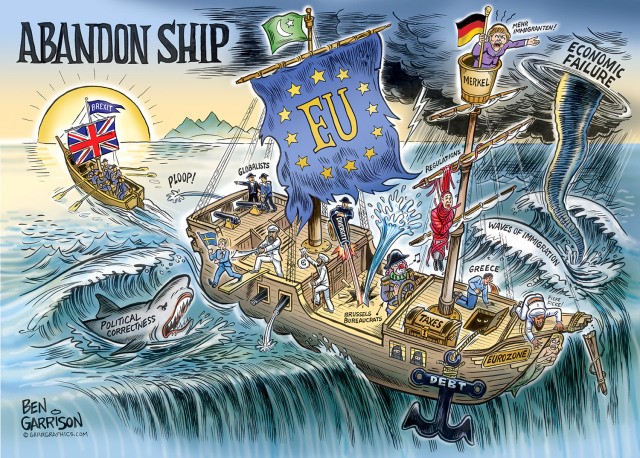
After Brexit, some of the other European countries also show the sign of trying to withdraw from the EU. Due to the refugee problems and the gap between rich and poor countries, the EU is facing chaos. So the worst scenario is the falling apart of the EU system. Brexit is just the beginning of neoisolationism.
The Isolationism Policy of the United States
The Diplomatic Policy of America in the Past
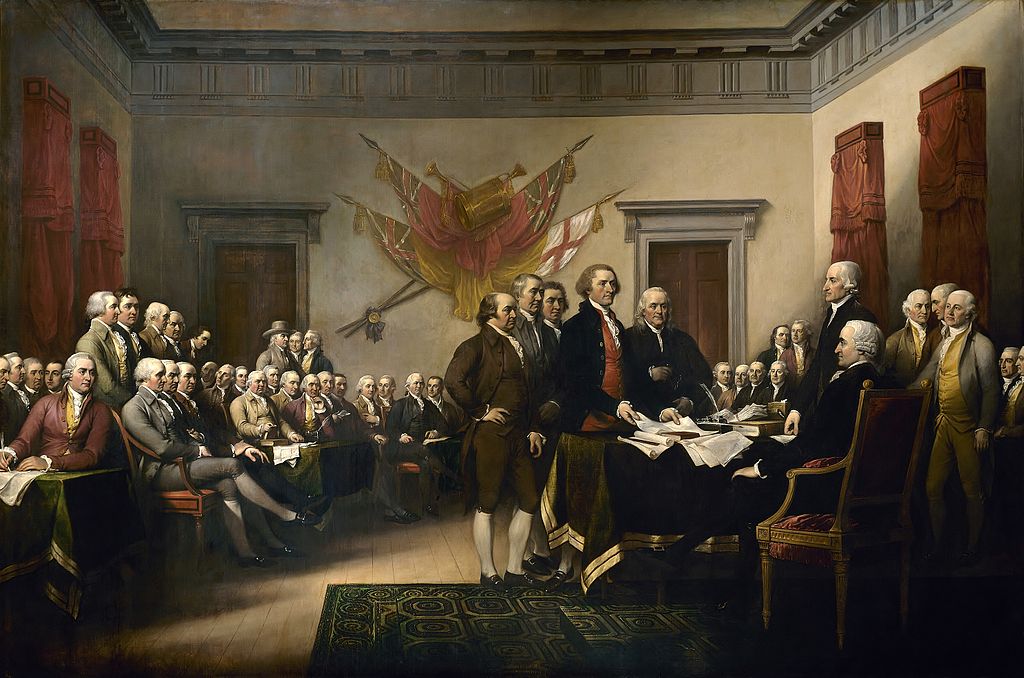 |
||||||||
|
||||||||
The American foreign policy of isolationism started from the moment of the birth of the nation. After the American Revolution, America employed the isolationism policy as one of the strategies to deal with the power of Europe and to put the American continent into its scope of influence. The farewell speech of George Washington in 1796 and the Monroe Doctrine in 1823 voiced the same doctrine: America would interfere with issues in Europe, so Europe should not interfere with those of America.
When the First World War broke out, the United States took an interest in international problems. President Wilson created the League of Nations with America as one of the founding members. But the plan fell through by the powers of isolationism who dominated the Senate. To make matters worse, America experienced an unprecedented economic crisis during the Great Depression. In the meantime, other countries lifted economic tariffs and moved toward more protectionist policies. Accordingly, American also implemented an isolationism policy to handle its own problems first.

However, after Roosevelt’s reelection in 1936 and the Second World War in 1939, they dropped the traditional geopolitical view that the physical distance from Europe would keep America safe. The US government began to lean toward interventionism for their own practical interest. The interventional tendency became stronger with the brewing atmosphere of globalization. After the end of the Cold War, the United States assumed the role of the world’s policeman, intervening in the internal issues of other countries. However, now there is a continuing debate over the returning to isolationism after the election of Donald Trump. Trump championed ‘America First’ and declared the implementation of anti-immigration laws and the reduction of military intervention in Asian countries.
Make America Great Again, Trump
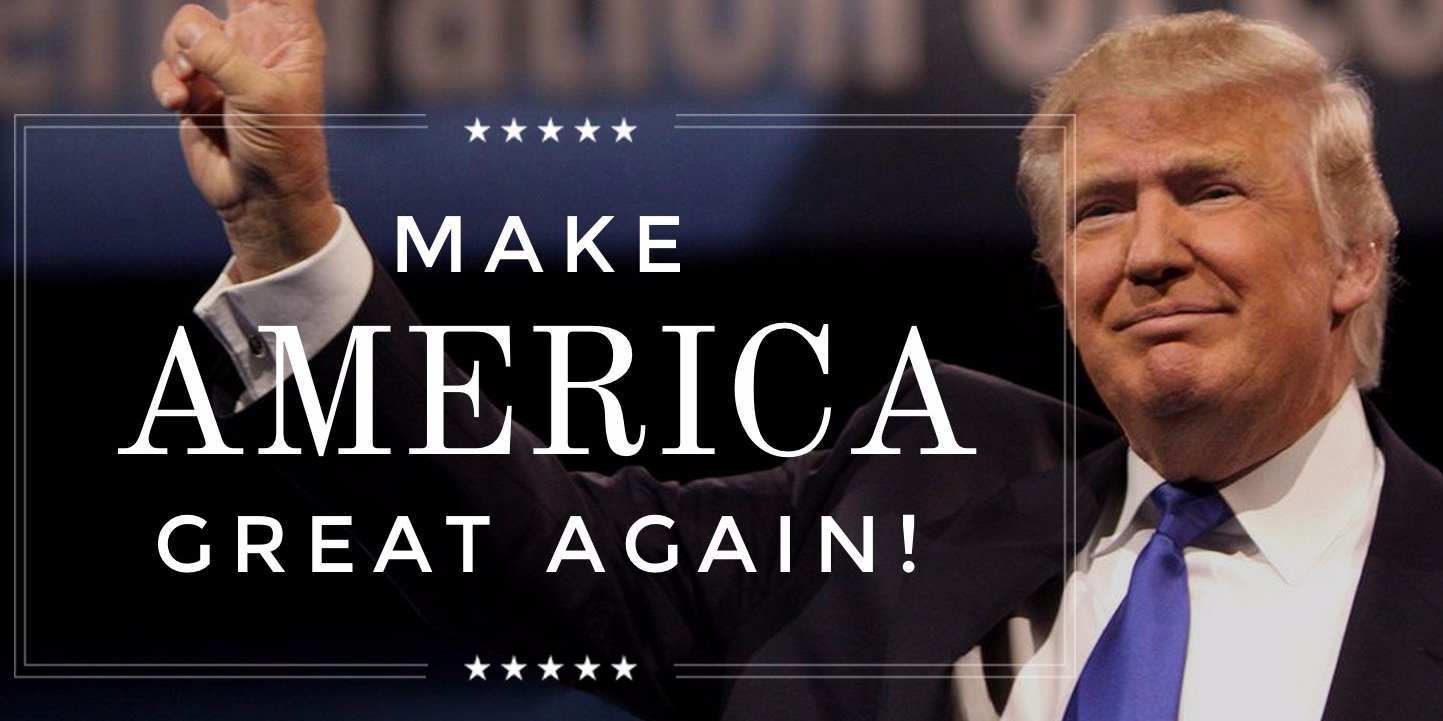
On November 8, 2016, Donald Trump beat Hilary Clinton against many people’s expectations. Trump, with the slogan “Make America Great Again,” gained the support of most Americans. Trump was an entrepreneur in the real estate industry. He was far from being a politician, but he took advantage of the public sentiment that had been accumulated in the American society for 50 years. He knew how to address such issues as illegal immigration and the unemployment problems for his political ambition.

Illegal immigration has been a long-standing problem in the US. The illegal immigrants took jobs away from Americans and allegedly committed many crimes. The taxes used for them were substantial, but the tax rebate rate was appalling. To take a proper measure against those illegal immigrants has been easier said than done. Former president Barack Obama and the former presidential candidate Hilary Clinton were on the same side. They were lenient to the illegal immigrants. Many Americans found themselves unhappy with their humanitarian attitude. Trump, clever enough to capitalize on this sentiment, promised the enforcement of anti-alien laws. In the past he was notorious in making xenophobic comments on Muslims, and now he prohibits issuing visas to people from seven Muslim countries and denies accepting refugees.
At the time of the presidential campaign, Trump made lots of disturbing promises. He announced that he would slap huge tariffs on China and Mexico to revitalize domestic manufacturing industry. He dreamed the US-dominating international trade system with the withdrawal of the TPP and the FTA re-alignment. He went as far as to claim that global warming was a lie and that he would not cooperate with the Paris climate treaty in excuse of boosting up the US economy. Furthermore, Trump declared that the US would longer assume the role of an international police officer, and any country in need of help from America should pay 100% of the expenses.
Trump's policies prioritize the exclusive interests of America and American citizens just last the past isolationist regimes did. However, many people are concerned about such egocentric policies as they might endanger America unlike his expectations. Trump’s self-centered politics along with Brexit obviously exerts a tremendous impact on otherwise peaceful international order.
Preparation of Korea against Isolationism

Given its geographical characteristics and historical situation, Korea is not in a position to take an either-or policy moving back and forth between isolationism and interventionism. We should learn from the past history. In the late Joseon Dynasty, Heungseon Daewongun opted for the policy of seclusion. He drove Western powers out of the land and blocked trade with them. Unfortunately, however, it resulted in the isolation of Joseon from outer world, thus make the nation blind to the modernization of neighboring countries. What is the impact of the neoisolationism emerging around the world on Korea, and how should Korea cope with it?
Korea and the EU are under 0% tariffs on the export of goods such as jet fuels, transport machinery, petroleum, and petrochemical products. However, if the individual FTA with the UK gets inevitable due to Brexit, the 0% tariffs will hardly be maintained. In addition, the UK is the second largest investor in the domestic market of Korea, the unstable market anticipated from Brexit is likely to force many British investors to leave. Korea also face challenges from Trump’s America. Korea Development Institute estimated that Korea's annual average economic growth rate will fall by 0.31% when the Trump’s radical protectionism policy is in full swing. Trump keeps criticizing South Korea, China, and Japan as he believes they have recorded a trade surplus with the US for many years. He has even denigrated those three countries as “currency manipulation bureaus” to be under constant surveillance. He is now determined to correct what he calls such “unfair trade conventions” by nullifying the existing what he calls “job-killing FTA’ or re-negotiate its term.
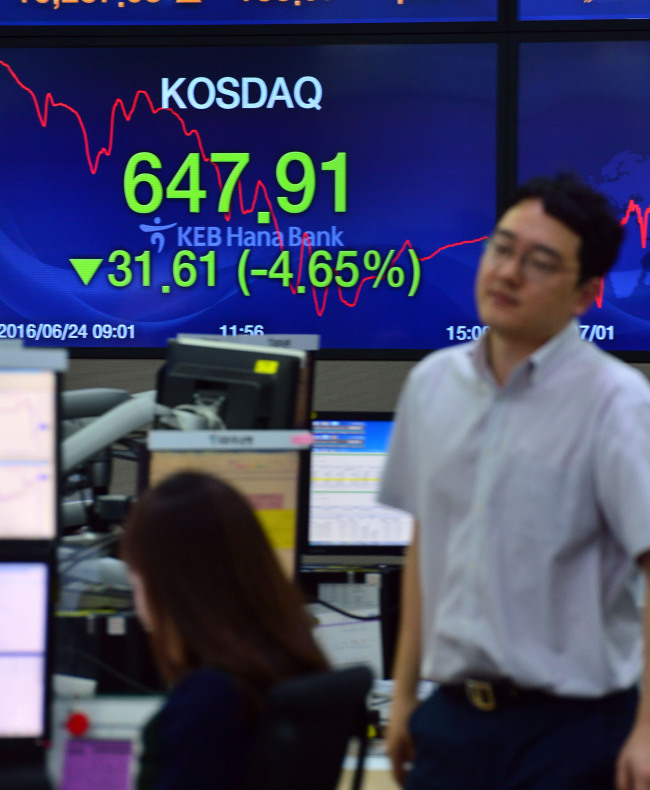

The Korea Economic Research Institute advises that Korea should respond actively to the changing business environment with the United States and Britain. They also points out that Korea needs to prepare in advance well-crafted scenarios for possible trade disputes with them and appropriate counter-measure strategies. In order to see through the economic uncertainties of the future, Korea should strengthen its domestic financial and stock markets while being on alert to their international counterparts.
Yang Hah-eun (ST Reporter)
favor1014@ssu.ac.kr
Kim Seung-soo (ST Reporter)
seungpeter@ssu.ac.kr



